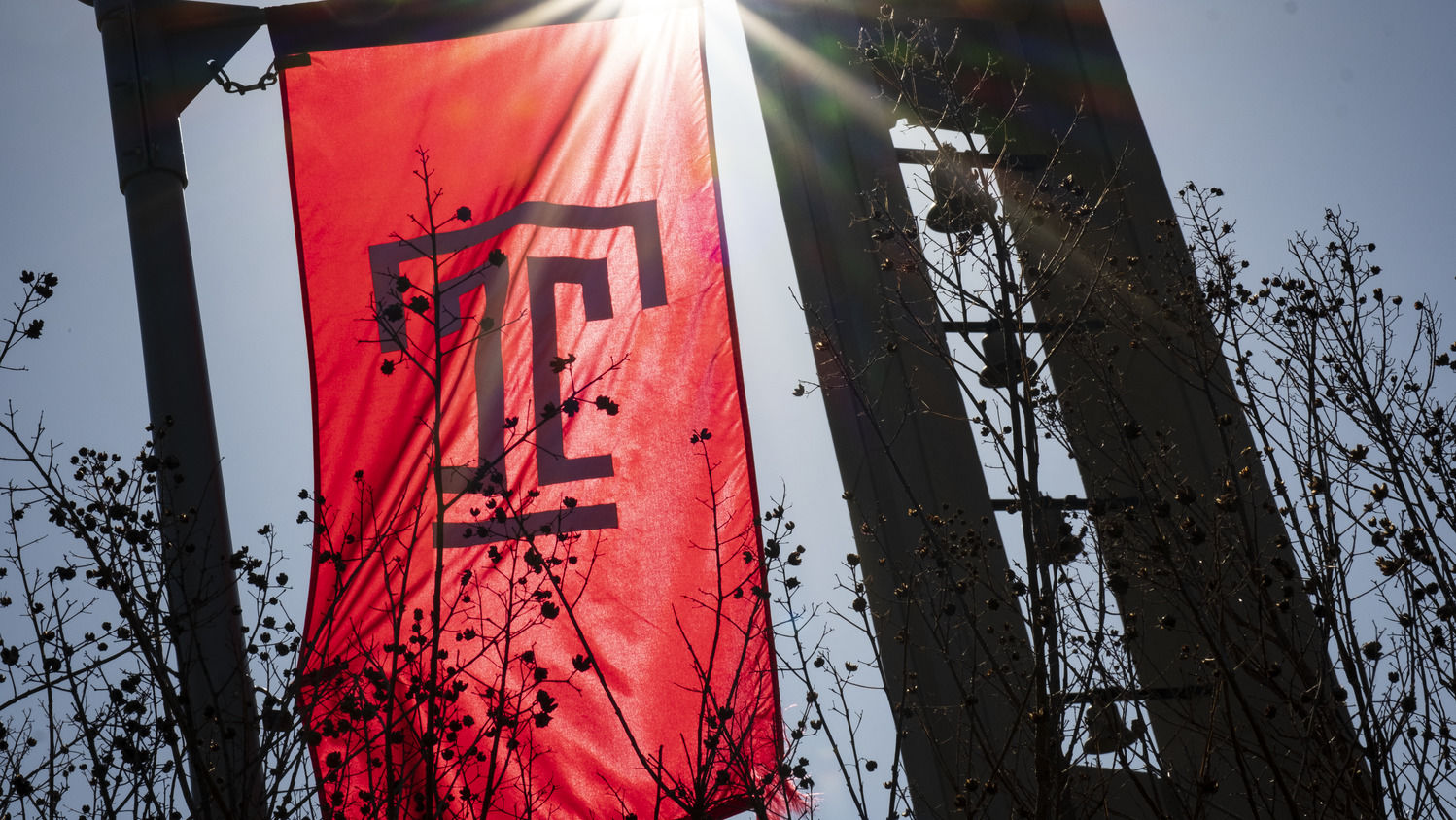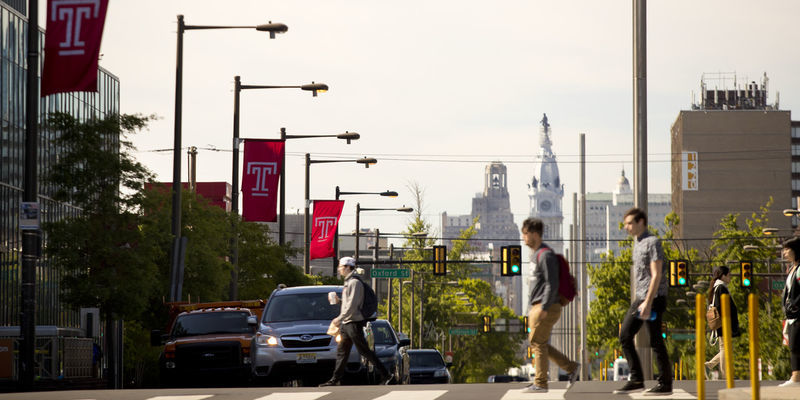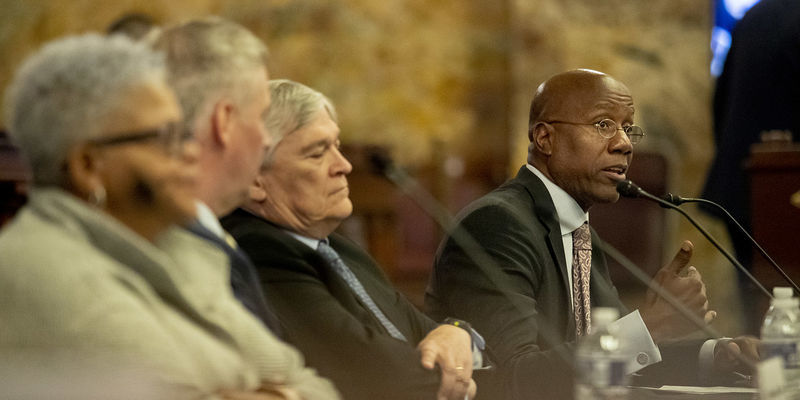Temple University makes its case for stable in-state tuition rates in Harrisburg
Senate and House Appropriations Committee hearings follow a meeting with Governor Shapiro.

State appropriations to Temple University and three other state-related institutions are likely to increase this spring to help keep tuition rates flat or stable for Pennsylvania students in the upcoming academic year.
“Reducing student debt is a priority for everybody,” said Ken Kaiser, Temple’s chief operating officer. His remarks during the Senate hearing focused on keeping Temple affordable for students and the need to provide support for mental health and campus safety.
During appropriations hearings and in a meeting with Governor Josh Shapiro last month, Temple, the University of Pittsburgh, Penn State University and Lincoln University all sought increases in their annual allocations.
Shapiro presented his first commonwealth budget to a joint meeting of the General Assembly on March 7. After four years of commonwealth budgets with flat allocations, Shapiro allotted a 7% increase in funding to Temple University, or $169.4 million for the 2023–2024 year. His spending plan will be reviewed by the legislature for approval later this spring.
Temple is encouraged by this proposed increase and looks forward to collaborating with Governor Shapiro and the General Assembly to secure the maximum funding available for Temple University as the budget process moves forward. The support helps the university accomplish its goals to uplift our university, Philadelphia and the commonwealth. This funding is critical for Pennsylvania students and their families.
To make college more affordable and accessible, Temple supplements the state funding it receives by offering $270 million in tuition support for Pennsylvania students. That translates into an average 44% tuition discount for every undergraduate in-state resident. Without adequate state funding, students could face increased tuition and more student debt, and fewer students would have access to higher education.
During the Senate and House Appropriations Committee hearings on state-related institutions in March, access and affordability were two key topics addressed. Lawmakers directed a wide range of questions to leaders from Temple, Penn State University, University of Pittsburgh and Lincoln University.
Lawmakers also asked about workforce preparedness and the difficulties in hiring educators, nurses and police officers in recent years. Temple officials said robust ideas were being reviewed to support the university in these areas, especially community safety.
Kaiser told the Senate committee on March 30 that Temple added eight more sworn officers to its police force in March, with two more training in the academy. He also mentioned Temple’s new agreement with the Philadelphia Police Department for 288 additional hours of patrol in Temple’s patrol zone per week. He also highlighted that new state-of-the-art technology and equipment upgrades are being planned because of a $1.77 million grant from the Pennsylvania Commission on Crime and Delinquency announced in March.
In the House hearing, State Representative Elizabeth Fielder (D) and other lawmakers noted that they would like to see more collaboration among state-related universities and community colleges, as well as better pathways to higher education for high school students like those in her South Philadelphia district. “As a city, we’re very fortunate to have so many great schools. But I think a lot of students are missing out because those connections are really lacking,” she said following the House appropriations hearing.
The four schools all increased tuition rates during the current academic year. In the hearings, leaders of the universities said they could not commit to whether they would be able to freeze tuition if the allocation is at the level proposed by the governor.
A preliminary budget should be adopted by the legislature by mid-June. A final commonwealth budget must be adopted by June 30 and takes effect July 1.
- Wendy Ramunno and Deirdre C. Hopkins


